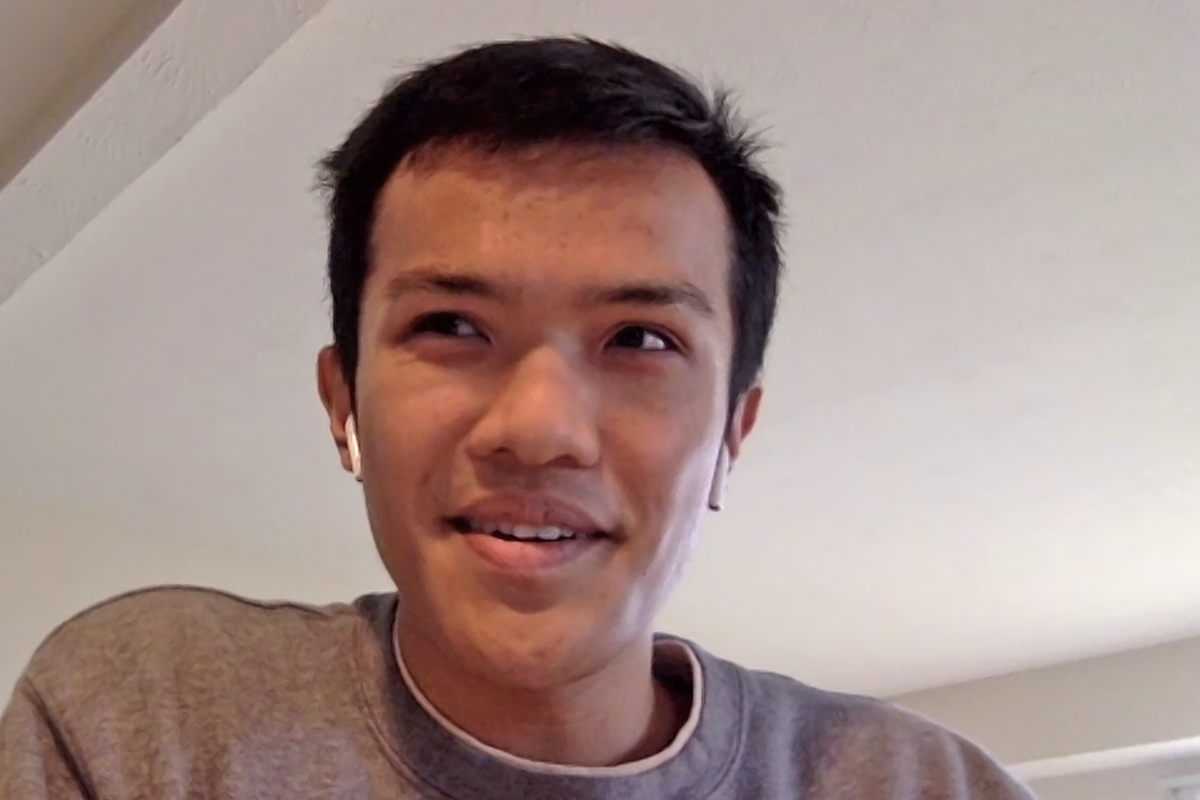Go Ahead, Ask a Grad
“How do you come up with ideas?” “Have you discovered any interesting stuff?” “What’s the most dangerous chemical you’ve worked with?” These are just a few of the irreproachable questions asked – and answered – through a new science outreach program run by Department of Chemistry students introducing high schoolers to grad school chemistry.
Faced with a shuttered research enterprise and a bit more time on their hands than they are comfortable with, the Department’s grad students and postdocs sought a way to make their days more productive. They created Chem-STEM, a virtual, half-hour Q&A session that presents their academic lives in broad brush strokes for high school students with little idea of what graduate students do all day.
By all accounts, the program is a hit. To date, Chem-STEM has piloted five classes in area high schools, including Trenton High, Hamilton High, and Council Rock High in Newtown, PA. More online appointments are being sought, and plans are developing to extend the program into the fall, possibly carrying the Princeton imprimatur to students outside the Garden State.
Chem-STEM involves 12 graduate students and post-doc volunteers. Additional volunteers are welcome.
“I think it’s really enriching to interact with the high school students because they’re so optimistic and curious,” said Benito Buksh, a first-year graduate student and one of Chem-STEM’s initiators. “This childlike optimism and curiosity about the world is exactly why we went into science in the first place.

“I think that if the lab shutdown had never happened, the idea wouldn’t have come about and the program would have been harder to get going,” he added. “So it’s all about staying positive in this difficult time.”
Dali Davis, also a first-year, piloted the program with Buksh. “Part of my reason for attending graduate school was to be a figure for people to look up to and know that graduate school is an option for anyone who has the drive,” Davis said. “Chem-STEM has helped me remember that.”
As for the teachers, they not only get a short break from on-line instruction; they take a back-of-the-class seat to Princeton’s students and watch the peer exchange. Thuy Le, a science teacher at Trenton High School, said she got her class involved so they would be inspired to learn about chemistry from those actually pursuing it.
“Most of my students would like to attend college but they do not feel that is an option for them,” she said. “Students also think that chemistry is a difficult subject and think they cannot do it. I hope exposing my students to graduate students at Princeton and listening to their stories helped them feel they can attend college in a STEM field.”
Teresa Grateful teaches the upper-grade research class at Council Rock High School-North in Newtown, PA. After the pilot program for her students last month, she said simply, “That was awesome!”
The Chem-STEM session starts with a 10-minute PowerPoint presentation about chemistry and how it impacts daily life in unexpected ways, and then breaks down the logistics of the graduate student’s job.
Predictably, the Q&A session is the liveliest part of the program. Grad students adroitly establish the proper tone as they respond to questions, treading carefully between relatable-older-student and mentor-with-a-message. They don’t disappoint when asked about dangerous chemicals they’ve worked with (concentrated sulfuric acid and metallic lithium), or where they come up with ideas for research (it’s like building blocks – you build on knowledge other people discovered).
For example, when one Trenton High School student asked how a new material gets conceived, “like, what’s the process,” third-year grad student Marissa Lavagnino gave a pitch-perfect answer to the 20 students online.

“When you’re doing organic chemistry in general, you’re really just mixing two things together. Then, you characterize the material once it’s done mixing,” she said. “When you’re trying to develop a material, you have a specific purpose – you’re adding in new things or removing things, heating them up or cooling them down. It’s a lot of trial and error and optimization.”
Buksh said the program is looking for more volunteers: “It’s not too late to join.”
Those interested in contacting the group or getting more information about Chem-STEM should contact: [email protected]
